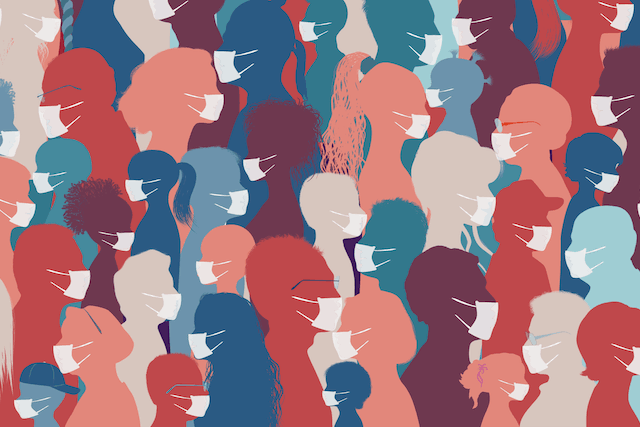The World Health Organization announced on 31 May new covid-19 variant labels using letters of the Greek alphabet.
The labels were assigned following a “wide consultation and a review of many potential naming systems”, the authority explains, but do not replace scientific names, which “can be difficult to say and recall... As a result, people often resort to calling variants by the places where they are detected, which is stigmatising and discriminatory.”
While the announcement came as welcome relief to some--perhaps especially journalists--it feels a tad late. Our own team had previously deliberated on how to refer to variants, concerned about the inherent discriminatory aspects while simultaneously aware of the fact that these variant names had nevertheless entered the common vernacular. It would have helped to have such guidelines earlier.
Interestingly, already in a February 2020 bulletin, WHO stated, “Don’t attach locations or ethnicity to the disease, this is not a ‘Wuhan Virus’, ‘Chinese Virus’ or ‘Asian Virus’.”
No one perhaps more infamously ignored that guidance than former US president Donald Trump. Multiple media outlets reveal a complaint was filed against him in a federal court at the end of May by the Chinese Americans Civil Rights Coalition to the tune of $22m--the equivalent of $1 paid to every Asian-American and Pacific Islander residing in the US. CACRC argues that these communities were injured as a result. Tragically, a string of hate crimes against Asian-Americans peaked on 16 March, when a gunman took the lives of eight victims, six of whom were women of Asian descent.
A study published this year in the American Journal of Public Health analyses anti-Asian sentiment on Twitter. The authors called on public health agencies not only to coordinate with media outlets and policymakers, but also to consider “generic templates” for the media in future. They hope their framework could be extended beyond covid-19, as well, informing descriptions of invasive species, for example.
Luckily, in Luxembourg--at least as far as we are aware--there hasn’t been a rise in hate crime against Brits, for example, even before the variant first discovered in the UK was renamed Alpha. I do recall, however, some popular Asian restaurants being almost void of visitors at the start of the health crisis, prior to lockdown--something a few owners confirmed to me as well, even if by now it’s a distant memory.
That’s not to say there isn’t intolerance more broadly, however: a survey carried out by Luxembourg’s centre for equal treatment (CET) and Tns-Ilres in September 2020 shows that nationality was the most-cited type of discrimination, experienced by 46 of the 1,014 residents surveyed. A total 20% said they had been victim of discrimination over the course of the last three years, although it provides no insight into possible links with the pandemic, nor how social media might amplify such discrimination. On a slightly more optimistic note, however, of the 257 residents who had witnessed discrimination, 57% helped the victim in some way; 45% challenged the person.
In his Dictionary of the Undoing, John Freeman argues that words are our connectors. He calls upon all of us--not just journalists--to “navigate around the rhetorical acts of sabotage, to grab the pump levers of language and turn the lights back on”.
Words matter.
An adapted version of this article was originally published in the Delano July 2021 print edition.
To get Delano delivered directly to your doorstep every month, free of charge, simply fill out the form via this link.
